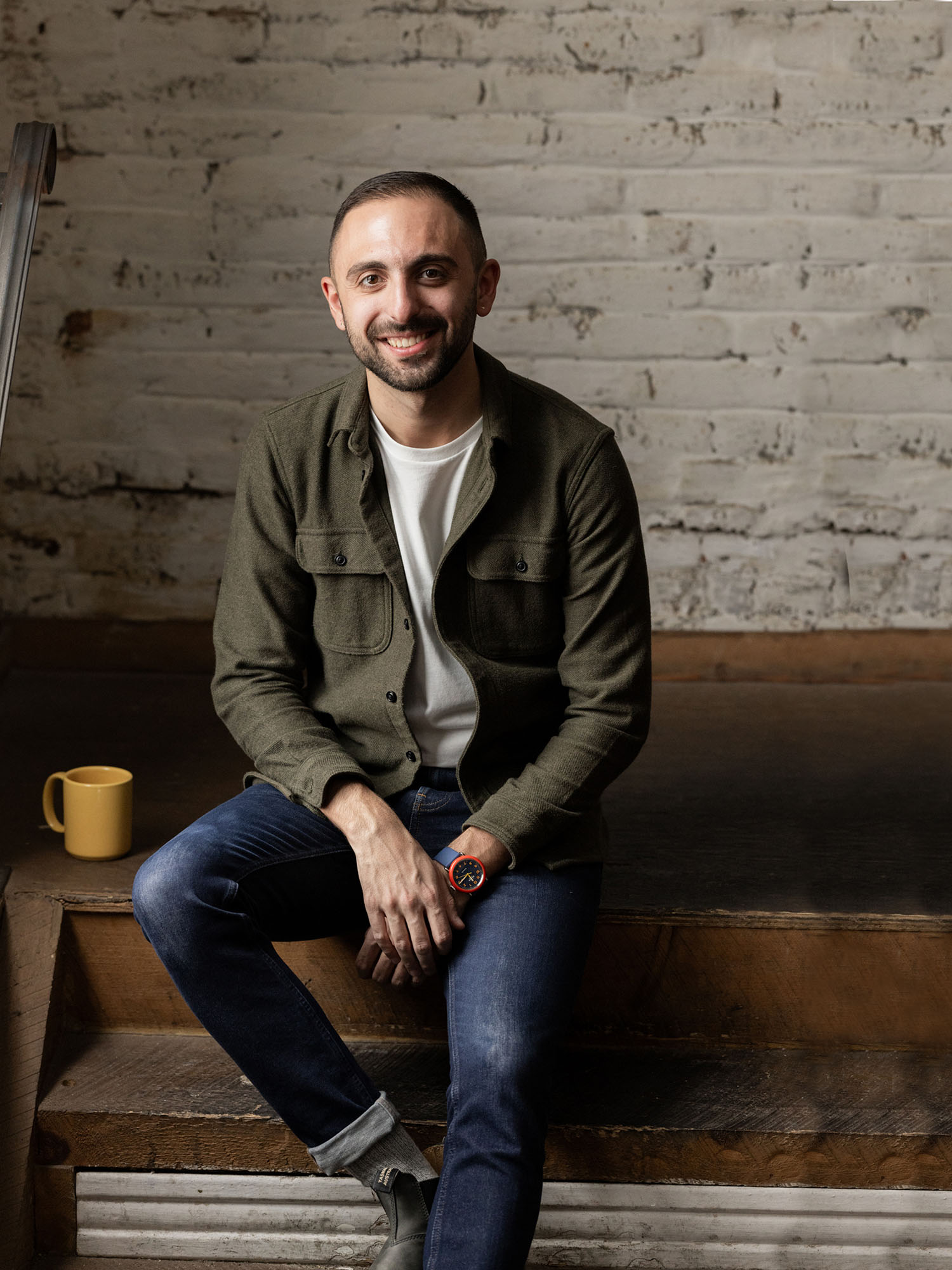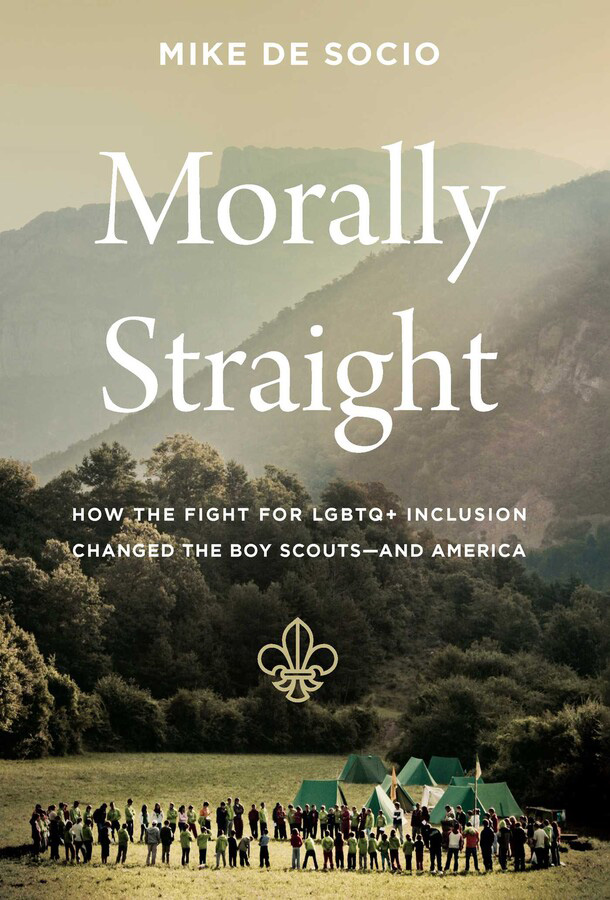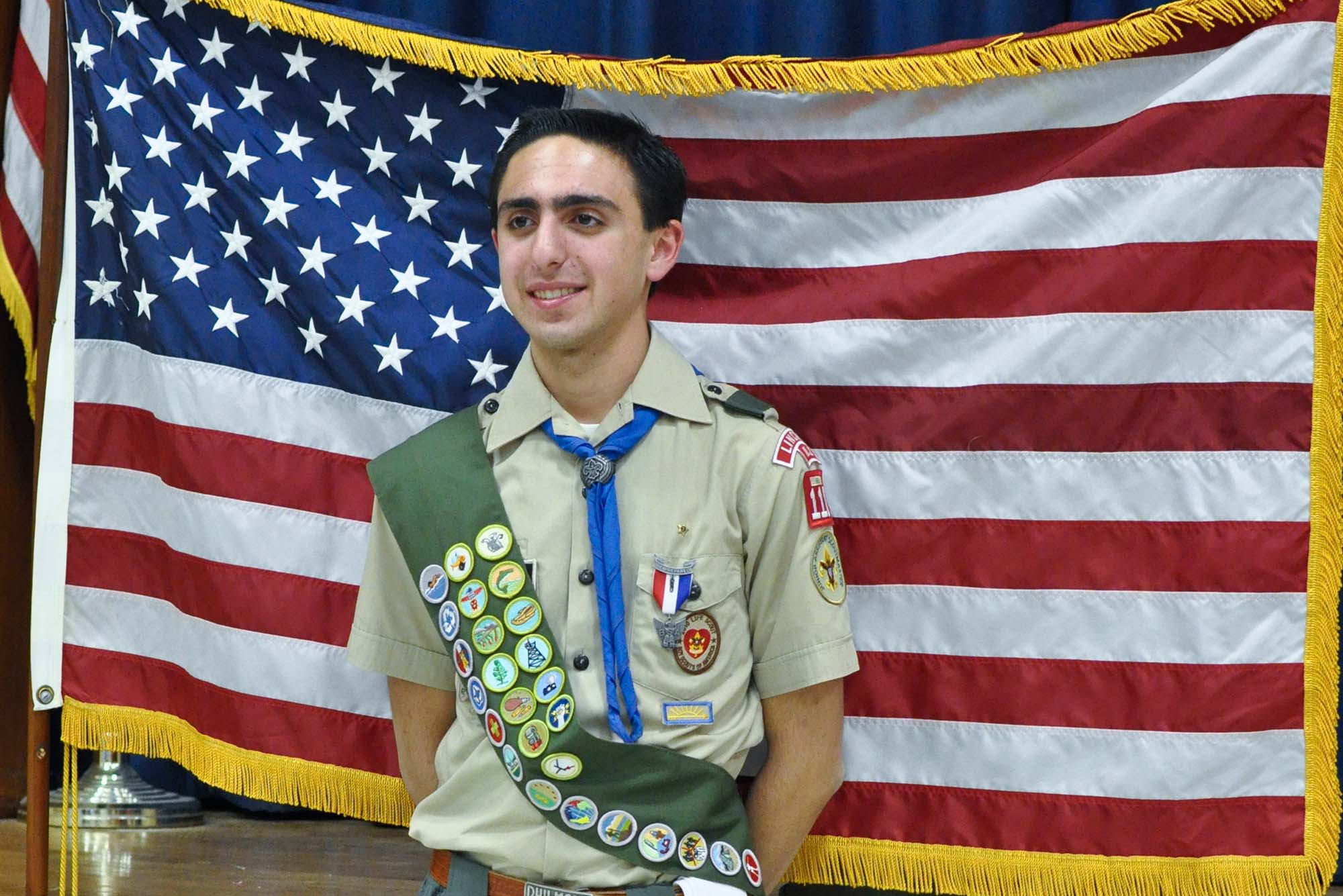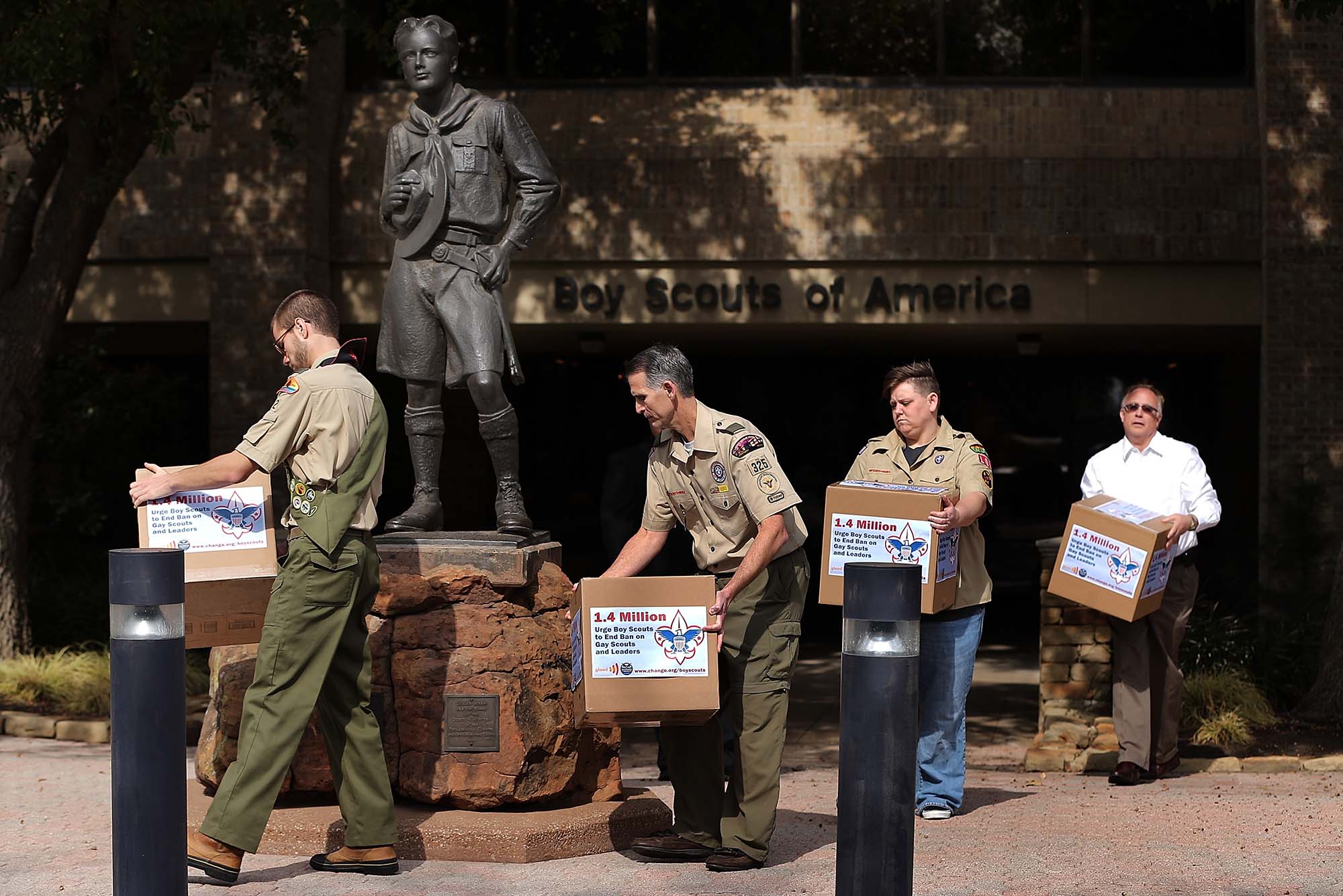Alum’s New Book Recounts the Battle for Inclusion in Boy Scouts
In a new book, COM alum Mike De Socio recounts the decades-long fight

“I’ve always been fascinated by this history, even as someone growing up in the program,” says journalist Mike De Socio (COM’17), who was an Eagle Scout as a teenager. Photo by Olivia Nadel (COM’17)
The Battle for Inclusion in Boy Scouts
In a new book, COM alum Mike De Socio recounts the decades-long fight
“So much of my life has been shaped by Scouting,” says Mike De Socio, a freelance journalist in upstate New York. “I couldn’t be this person who was so deeply connected to the program and a journalist and not bring those two things together.”

His first book, Morally Straight: How the Fight for LGBTQ+ Inclusion Changed the Boy Scouts—and America (Pegasus Books, 2024), tells the story of the quarter-century fight for LGBTQ+ inclusion in that truly iconic institution. His own story of Scouting—he became an Eagle Scout as a teenager—and coming out offers a quiet counterpoint.
Scouting taught him how to set a goal and achieve it, and gave him tons of tactical leadership skills and a love of the outdoors that shapes his life to this day, says De Socio (COM’17), an avid hiker and cyclist. It also strengthened his sense of right and wrong.
Originally, the Boy Scouts of America (BSA) had no official, written policy on gay Scouts or Scoutmasters, which left their status at the discretion of local and regional Scouting groups. They were sometimes able to fly under the radar, but often were ostracized or excluded. A ban on openly gay members and leaders became BSA policy in the late 1970s. (This year, the organization changed its name to Scouting America, effective February 8, 2025.)
The bulk of De Socio’s text focuses on the courage and perseverance of a half dozen Scouts and Scout leaders fighting for inclusion over many years, including Scout James Dale, the first to take a case to the Supreme Court in 2000, and Zach Wahls, the son of lesbian moms who led the final, successful push for policy change a decade later.
“I’ve always been fascinated by this history, even as someone growing up in the program,” says De Socio. “I didn’t actually know that there was an antigay policy in the Scouts until after I became an Eagle Scout in 2011, at age 16, and ever since I’ve wanted to understand where it came from and how we got here.”
I didn’t actually know that there was an antigay policy in the Scouts until
after I became an Eagle Scout…and ever since I’ve wanted to understand where it came from and how we got here.
De Socio penned his first newspaper piece about the topic in high school and continued to write about it and other subjects at BU under the tutelage of Mitchell Zuckoff, the Sumner M. Redstone Professor in Narrative Studies at the College of Communication and a best-selling nonfiction author. Zuckoff continued to mentor him at BU as the story turned into a book.
“A few years ago, I realized a lot of these major milestones have happened in the organization, and no one has really done this in a long narrative way,” De Socio says. “As someone with a personal connection to the program, I felt like I could tell it in a unique way.”
Finding Safety in Scouts
De Socio experienced garden-variety homophobia during his Scouting years, but when he came out to others in Scouting as an adult volunteer when he was in college (not long after coming out to his family), there was little fanfare. Whatever image people might have of Scouting and its place on the cultural divide, the issue as De Socio describes it is not black-and-white. The individual troops that are the backbone of the organization often proved more accepting of LGBTQ+ Scouts and adults.

Seen here at his Eagle Scout Court of Honor, De Socio was already wrestling with confusion before coming out when he was in college. Photo courtesy of Mike De Socio
“I grew up in Scouting in the early 2000s in New Jersey, which was kind of a mixed bag,” he says. “Not the most conservative or homophobic place in the country by any means, but also a place where all of my peers were using ‘gay’ as an insult and where that was just entirely taken for granted. I didn’t see the Scouts as this progressive space, but it was still gentler than sports or school and I could still find my place in it.
“I think that tension has always existed. Maybe on its face, Scouting is a machismo, conservative thing, but in a lot of troops, people find safety or a home where maybe they didn’t expect to.”
The book says little about the sexual abuse scandals that have rocked Scouting in recent decades. Perhaps surprisingly in today’s polarized society, the issue was never used as a PR weapon against inclusion efforts, De Socio says.
In the end, the fight to allow gay Scouts and LGBTQ+ adult Scoutmasters was won in stages in the courts of law and public opinion. Gay youth were formally OKed as Scouts in 2013, adult leaders in 2015. The latter came with a change of course at the top under then BSA president Robert Gates, an Eagle Scout and the former secretary of defense who had presided over the repeal of “Don’t Ask, Don’t Tell” in the military.

The official voice of the BSA appears in the book only via court records and the occasional official statement; long after Scouting had changed, leadership saw no upside in cooperating with De Socio.
Some of the ins and outs of the fight will be of interest mainly to historians. But the courage and conviction of Scouts both gay and straight make it a moving saga—and De Socio’s personal stake helps make clear just how much inclusion matters.
“This is a story that, even if you have no connection to Scouting, holds so many lessons,” De Socio says, “and I’m really hoping that future generations pick it up and say, ‘Okay, how did this other group of people facing discrimination overcome that?’ To be the person to write that story that someone picks up 20 years from now will be an incredible honor.”

Comments & Discussion
Boston University moderates comments to facilitate an informed, substantive, civil conversation. Abusive, profane, self-promotional, misleading, incoherent or off-topic comments will be rejected. Moderators are staffed during regular business hours (EST) and can only accept comments written in English. Statistics or facts must include a citation or a link to the citation.